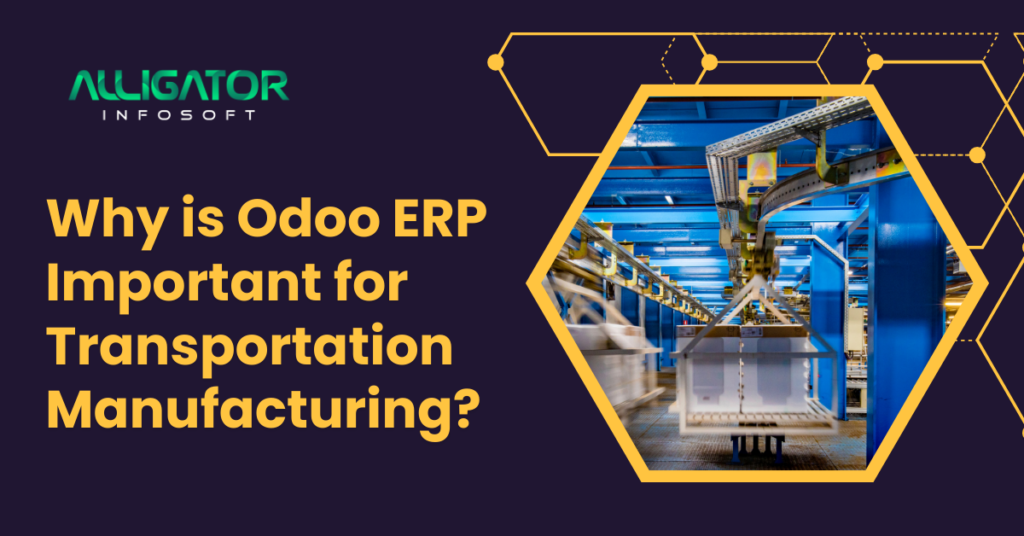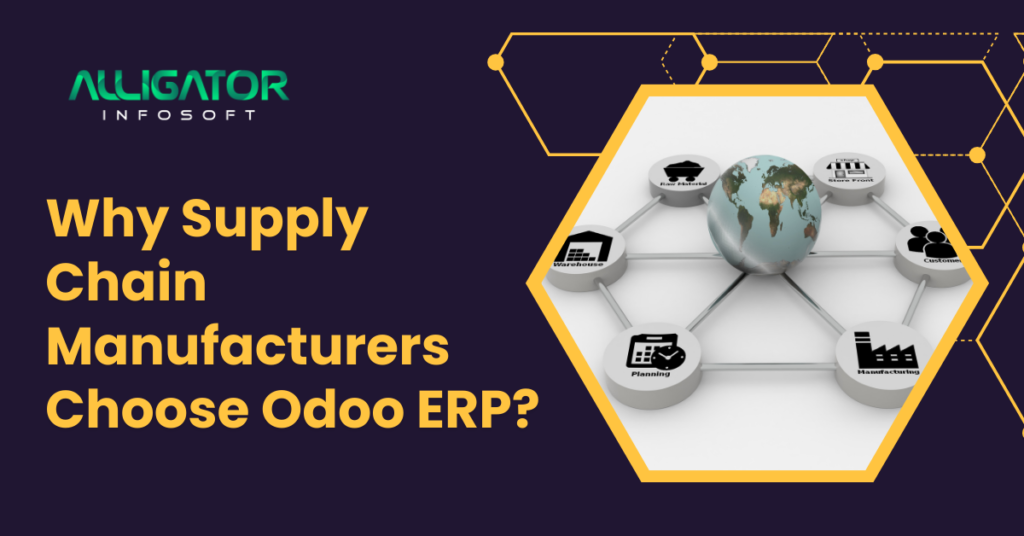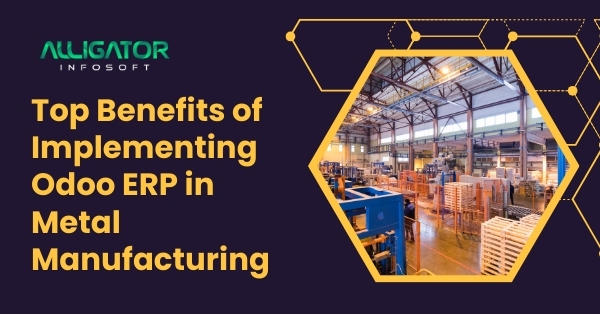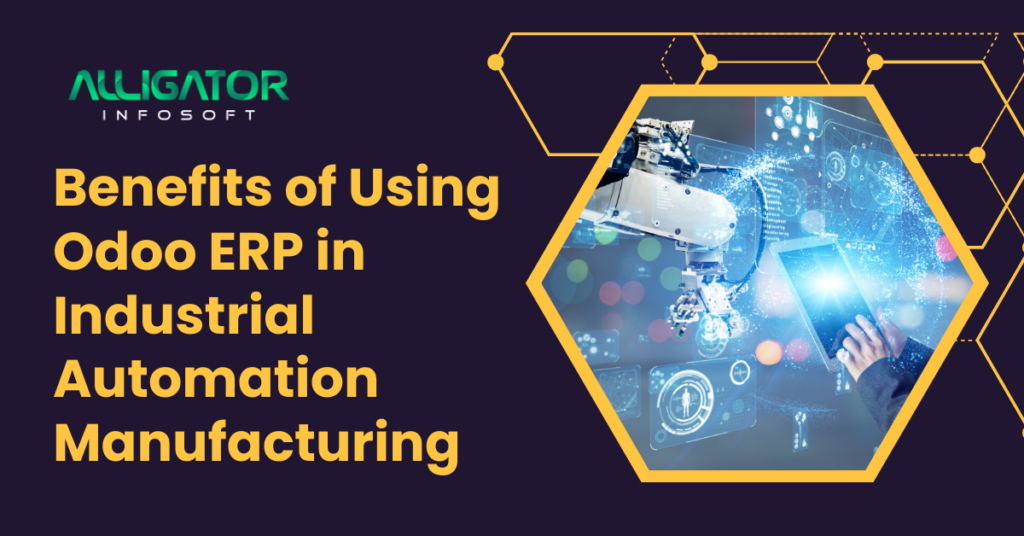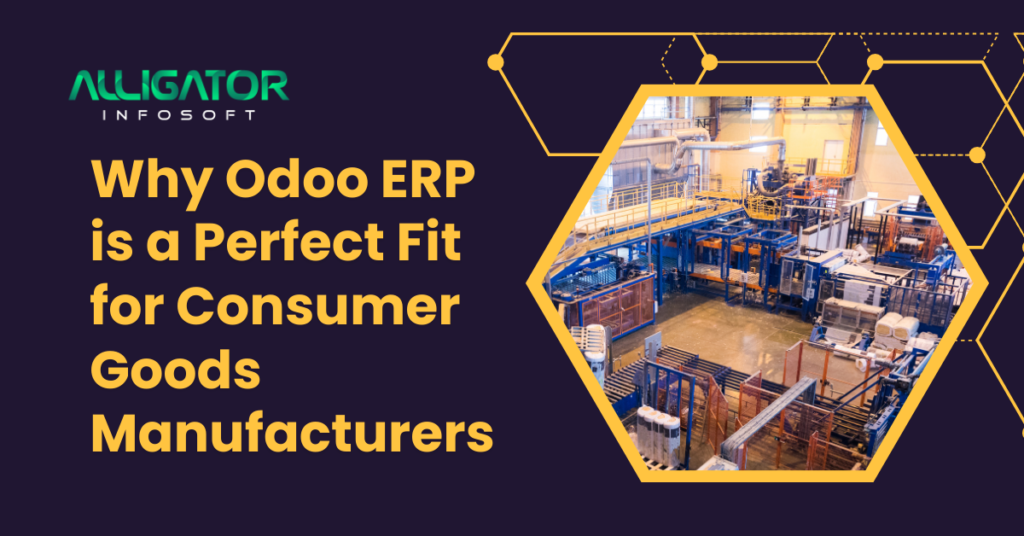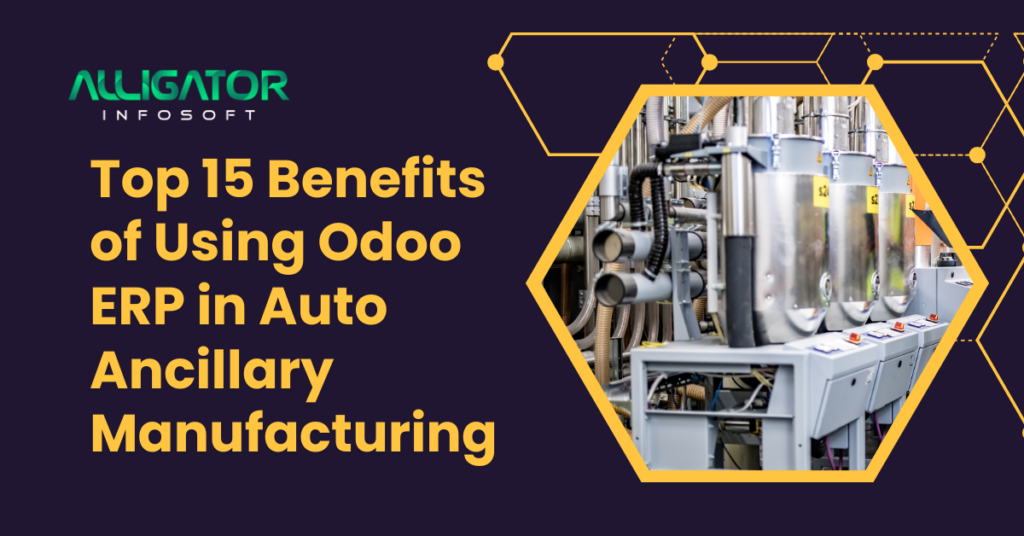Why is Odoo ERP Important for Transportation Manufacturing?
The transportation manufacturing industry is a dynamic, competitive sector that deals with complex processes. From supply chain logistics to production planning, managing these operations can feel overwhelming. That’s where Odoo ERP comes in, offering a powerful, flexible solution to streamline and optimize your business processes. Let’s explore why Odoo ERP is essential for transportation manufacturers and how it can revolutionize your operations. What is Odoo ERP? Odoo ERP is a comprehensive enterprise resource planning system that helps businesses manage various functions under one platform. Unlike traditional ERP systems, Odoo is modular, meaning you can pick and choose the features you need. Whether you need help with inventory management, production planning, or financial tracking, Odoo has a solution tailored to your industry—and transportation manufacturing is no exception. Some key features that make Odoo ERP stand out include: Easy customization to fit specific business needs. Integration with other tools and platforms. User-friendly interface for streamlined operations. Challenges in Transportation Manufacturing Before we get into how Odoo helps, let’s first look at the common challenges transportation manufacturers deal with: Complex Supply Chains: Managing suppliers, raw materials, and deliveries can be chaotic. Strict Regulations: Meeting industry-specific compliance standards is time-consuming. Production Bottlenecks: Delays in manufacturing processes can lead to costly downtimes. Rising Costs: Operational inefficiencies increase production costs. Does this sound familiar? If so, keep reading to learn how Odoo ERP addresses these issues. Benefits of Odoo ERP for Transportation Manufacturing 1. Streamlined Supply Chain Management Transportation manufacturing involves coordinating multiple suppliers and ensuring timely delivery of materials. Odoo’s supply chain management tools provide real-time tracking, making it easier to: Monitor raw material flow. Optimize supplier relationships. Prevent delays in production. Imagine having a dashboard that shows you exactly where your shipments are and when they’ll arrive—that’s Odoo. 2. Improved Production Planning Odoo helps you create detailed production schedules based on real-time demand. This ensures: Optimal use of resources. Minimal downtime. Faster turnaround times. For example, if an unexpected order comes in, Odoo’s planning module can instantly adjust your production schedule to meet the new demand. 3. Efficient Inventory Management Overstocking or running out of inventory can disrupt operations. Odoo’s inventory management system automates stock tracking and alerts you when levels are low. Benefits include: Reduced carrying costs. Improved order fulfillment rates. Real-time inventory insights. 4. Regulatory Compliance and Reporting Transportation manufacturers must follow strict safety and environmental rules. Odoo makes this easier by: Automating compliance checks. Generating accurate regulatory reports. Keeping your business audit-ready. 5. Cost and Time Efficiency Automation is at the heart of Odoo ERP. By automating repetitive tasks, your team can focus on strategic initiatives, ultimately reducing: Operational costs. Time spent on manual data entry. 6. Scalability and Flexibility As your business grows, so do your needs. Odoo’s modular design allows you to add features as required, ensuring you’re always equipped to handle new challenges. Features of Odoo ERP Tailored for Transportation Manufacturing Fleet Management: Odoo helps you manage your vehicles by tracking maintenance schedules, fuel usage, and the overall performance of your fleet. This feature ensures your vehicles stay in top condition, reducing downtime and unexpected repairs. Quality Control: With Odoo’s quality control features, you can set up checks to ensure every product meets the required standards before it leaves the factory. This helps maintain consistency and avoid costly errors or returns. IoT Integration: Odoo allows you to connect Internet of Things (IoT) devices to your machinery and equipment. This enables real-time monitoring, so you can quickly identify potential issues and take action before they lead to bigger problems. Multi-Currency and Multi-Language Support: For manufacturers working globally, Odoo support simplifies managing different currencies and languages. You can handle transactions in multiple currencies and communicate with international teams in different languages, making global operations easier. Customizable Dashboards: Odoo lets you create dashboards that are tailored to your business needs. You can track key metrics and data in one place, allowing you to stay focused on the areas that matter most to your company’s success. Real-World Applications of Odoo ERP Here are some examples of how Odoo has benefited transportation manufacturers: Case Study 1: A mid-sized automotive parts manufacturer reduced production downtime by 25% using Odoo’s production planning tools. With these tools, the company streamlined operations, reducing delays and improving overall efficiency. Case Study 2: A logistics company increased delivery accuracy by 40% after implementing Odoo’s fleet management module. The company was able to monitor its fleet in real time, ensuring deliveries were on schedule and reducing errors. These examples highlight the practical advantages Odoo brings to transportation manufacturers. Steps to Implement Odoo ERP Implementing Odoo ERP is a straightforward process if you follow these steps: 1. Assessment: Start by evaluating your business needs and identifying the challenges you’re facing. This will help determine which Odoo features are most beneficial for your operations. 2. Customization: Work with an Odoo consultant to tailor the system to your specific requirements. Odoo is flexible, and customization ensures it meets your unique business needs. 3. Development: Depending on your needs, Odoo can undergo further development to include features or integrations that are not available by default. A skilled developer can customize and build additional functionality to enhance your system, ensuring it aligns perfectly with your business requirements. 4. Integration: Connect Odoo to your existing tools and platforms. Integration ensures that your new system works seamlessly with your current software and processes, saving time and reducing disruptions. 5. Training: Ensure that your team is properly trained on using Odoo Training. This helps everyone get up to speed quickly and ensures the system is used effectively. 6. Go Live: Once everything is set up, it’s time to go live. With Odoo up and running, your business can begin to benefit from improved operations and efficiency. 7. Pricing: Odoo offers flexible pricing options depending on the modules you need and the size of your business. The pricing is generally more affordable compared to other ERP systems, making it a cost-effective option for businesses of all sizes. Transform


